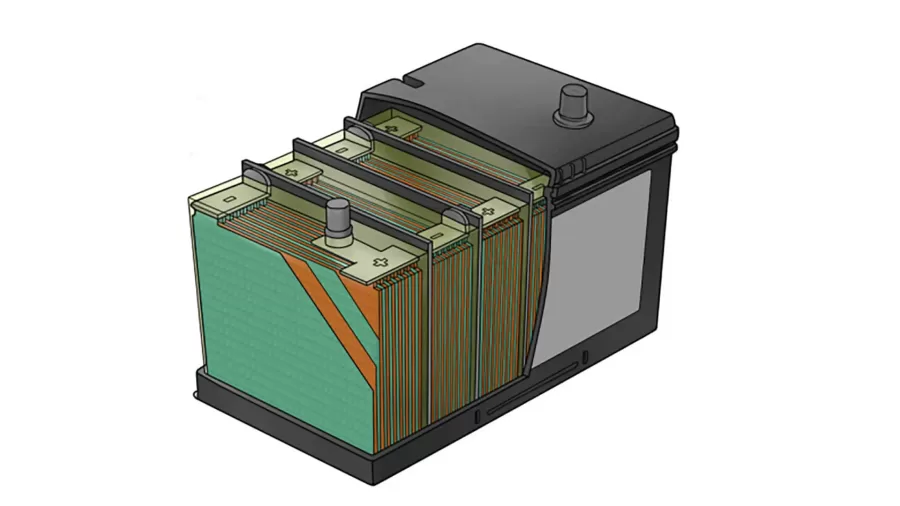RV camping allows people to explore nature and see new parts of the world, but there’s an unspoken hero to this process: your lithium RV battery. Your RV battery enhances the camping experience by powering everything inside your RV. In this article, we’ll tell you everything you need to know about lithium batteries for RVs, so you can be sure you have a superior and properly maintained battery to power your home away from home.
What is the lithium RV battery?
There are two types of RV batteries:
- Chassis batteries – These are also referred to as “starting batteries” and are used to start and power the engine. These are the car batteries that most people are already familiar with.
- RV deep cycle batteries – These are also referred to as “house batteries” and are the batteries we will be referring to in this article. House batteries power the inside of your RV, giving it electricity and making it possible to function as a recreational vehicle. There are three types of house batteries: absorbed glass mat batteries (AGM), flooded lead-acid (FLA) batteries, and lithium-ion (Li-Ion) batteries.

Why should I use Lithium Batteries for RVs?
lithium battery for RV trailers is the industry standard for the following reasons.
Longevity
Lithium-ion RV battery last significantly longer than the alternatives, meaning they’ll be able to withstand more charge and discharge cycles before losing performance. Your lithium-ion battery could even last as long as ten years, which is often the lifespan of ownership for the RV itself.
Low maintenance
While they do still require maintenance to ensure a healthy battery, lithium-ion batteries are relatively low maintenance. Alternatives like FLA batteries require constant maintenance and watering, whereas lithium-ion batteries do not.
Safety
Lithium-ion batteries can withstand extremely cold and hot temperatures without combusting. This is partially due to their connection to a battery management system (BMS) that protects the battery from overheating.
Convenience
Lithium-ion batteries offer a number of conveniences compared to other rv house batteries types. The BMS of a lithium-ion battery often connects to Bluetooth, allowing you to easily check your battery charge level, voltage, and battery health without having to connect it to any cables. Additionally, lithium-ion batteries charge faster, are easier to install, and are a much lighter weight than other battery types (sometimes weighing half as much as other batteries).
How do I maintain lithium-ion batteries for RVs?
While low maintenance, your lithium-ion battery does require some attention. Follow the below tips in order to maintain a healthy lithium-ion RV battery.
- Perform regular checkups-Check your lithium RV battery twice per month to ensure its health and longevity. Fortunately, a good BMS makes your battery’s health easy to check, with some systems offering updates right on your cell phone.
- Charge properly-Do not overcharge or undercharge your battery. Try to keep the power level between 20% and 80% for optimal use and safety.
- Avoid extreme temperatures when possible-While extreme temperatures are not necessarily dangerous, as well-designed battery casings and BMS’s will protect batteries from temperature-driven combustion, but they can still reduce the lifespan of your battery. Try employing insulation or a heating pad to keep your battery healthy in hotter or colder temperatures.
CMB’s LAB can boost the RV lithium-ion batteries’ performance and CMB lithium RV battery is famous for its long-lasting and reliable. If there are any further questions, please do not hesitate to ask!


